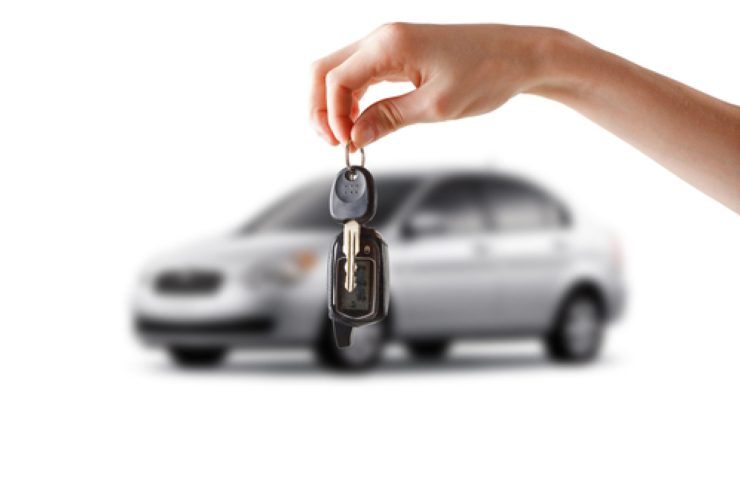Buy or Lease: 3 Questions to Ask
February 27, 2019
The decision to get a new vehicle is sometimes made for you such as when your old car breaks down and the repairs are too costly to justify. On the other hand, sometimes, purchasing a new car is an impulsive decision after seeing a multi-million-dollar advertising campaign on television and getting that “must have” urge. And sometimes it is in between; you have had your car for ten years and you deserve a new car with the latest technology and safety features. In either case, while the new vehicle buying process is typically exciting and fun, it may also be stressful as you figure out how to pay for your new and shiny ride.
Likely, after countless hours researching your new wheels on the internet, visiting a dealership or two to test-drive the vehicle, you have selected the make, model, options, color, and the rest of the “bells-and-whistles.” Now comes the not-so-fun part. Can you afford the vehicle you selected and what is the best way to pay for it? After you add on the metallic paint, technology package, upgraded sound system, and the destination charges, the total price after taxes and other charges may be more than you were expecting the vehicle to cost.
The first step is making sure you can afford the car. Do you have the cash to pay for the vehicle or will you have monthly payments? If you have been diligently saving and can write the check for the vehicle that solves this question. Is paying cash for a vehicle the best option? That is a topic for another blog. The point of this blog is making sure, while considering cash flow and long-term savings goals, you can afford the new vehicle and, assuming so, what is the best way to pay for it. More specifically, should you buy or lease?
Neither leasing nor buying has a clear advantage over the other. Many of the advantages and disadvantages depend upon your own personal preferences and needs. While there are many considerations, below you will find what we believe are the three biggest questions you should ask yourself.
What is the monthly payment and down payment you can afford?
When you buy a new car, you typically need a down payment which can be in the form of cash and/or a trade-in. You may have to come up with 5 percent or more of the new car’s value depending upon factors such as your lender and credit rating. When you lease a car, there’s typically no down payment. Instead, you’re usually required to make the first lease payment and provide a security deposit equal to one or two monthly payments. If you don’t have the cash or trade-in for a down payment, but need a car now, leasing might be the best choice for you.
When you buy a car, your monthly payments are based on the total purchase price, down payment, term of loan, and interest rate. Alternatively, when leasing, your payments are based on the car’s expected depreciation over the term of the lease, state sales tax, your credit score, and a lease fee.
All things equal, the monthly lease payment is usually lower than the monthly loan payment for a comparable car. As compared to buying, if you want to get “more car” for your dollar in the short-term, or your monthly cash flow is tight, you probably will do better with a lease since the combination of a low initial down payment (i.e. security deposit and first monthly payment) plus the lower monthly payments may be appealing.
How long will you keep the car?
Leases typically run two to four years and at the end of the lease you can switch to a new car. If you like the idea of driving a new car every few years, leasing may be a good choice for you. At the end of the lease term, you drop the car off at the lease company, pick out a new car, sign a new lease, and drive away. There’s no haggling over trade-in allowance and no worries about loan payoffs or down payments. That is a big advantage of leasing.
While you can still get a new car every few years even if you buy, you typically will need to sell your old vehicle. This generally involves negotiating the value of your trade-in or advertising in the local paper or on a website such as Auto Trader. Be prepared to deal with inquiries and showing the vehicle to prospective buyers if you decide to advertise on your own.
If you plan to keep your cars for more than four years, then it may be better to buy. When you buy a car, whether you purchase it outright with cash or use a loan, you own it free-and-clear (once the loan is paid off if you borrowed). Since you own the car, you can drive it as long as you want, sell it, or trade it in for a new car.
How much will you drive and how will you treat the car?
Take a good look at your driving habits. A typical lease will include 12,000 to 15,000 miles per year. If you exceed this limit, at the end of the lease term, you could be charged a per-mile fee for each mile over the contract limit. As mentioned above, when you buy a car, you’re free to drive it as much and as far as you like. So, if you drive a lot, buying may be a good option.
Most leases only allow “normal” wear and tear. If you are tough on your car, live in a crowded city, or typically park on the street, a lease may not be the best choice since you will have to pay for any damages the dealership dictates are above the “normal” wear and tear (dings, dents, cracks, stains, tears, or other unusual wear). And remember, those repairs you may have to pay for are a complete loss since you are turning the car back in to the leasing agency.
Compared with buying, if you have wear-and-tear that is excessive, you can decide to live with those dings and dents or repair them. Since it is your car, you benefit from the repairs, not the leasing agency.
Conclusion
Remember, neither option is inherently better than the other. It all depends on where you are in your life, what you’re looking to get out of your vehicle, and your personal financial situation. As with any major purchase, it’s always best to have a discussion with your financial advisor, educate yourself, and weigh the pros and cons of each option before making a decision.
Let the Certified Financial Planner® professionals at Williams Asset Management help with your wealth management needs. Whether you need comprehensive and holistic financial planning or investment management, we can help! We are fee-based, independent financial advisors located in Columbia, the heart of Howard County, Maryland. Schedule your complimentary consultation today by calling (410) 740-0220!


